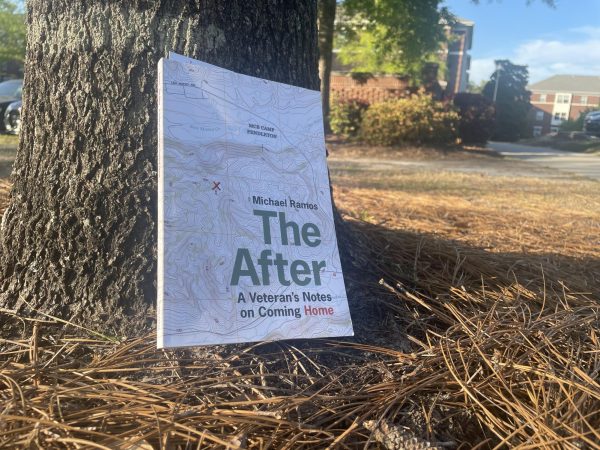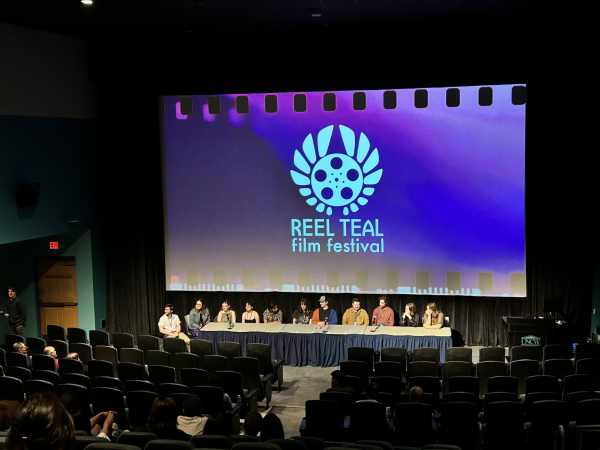The hookup culture: hangout or modern romance
February 4, 2013
We’ve all done it. Nearly every twenty-something in America has experienced, in some way or another, the casual sex phenomenon that has become known as the “hookup culture.”
Gone are the days of old-fashioned courtship and taking the time to get to know someone before falling into bed with them. Instead, Facebook information substitutes the need for a first date, and grinding in the club has replaced cultivating sexual attraction. There is a universal hesitation to refer to having sex with one person as a full-fledged relationship, and the lines that differentiate “dating” from merely “hooking up” are becoming more and more blurred. Relationships are no longer centered on whether or not to have sex, but rather the question of whether or not the casual relations often pursued by young people can lead to meaningful, committed relationships.
Part of the confusion seems based on the differing opinions of why exactly young people choose to participate in casual sex, and the competing roles of men and women in the hookup culture. For many, hooking up is the result of a generation that is influenced by gender stereotypes and that isn’t willing to settle, or commit to, anyone that falls short of their apparently unattainable goals. For others, it is more circumstantial, and can change depending on the people involved and the cultural expectations of relationships.
Ally Johnson, a 23-year-old Cosmetology student, has seen the differences location can make in the dating scene, especially when she compares the dating norms of her small Midwestern hometown of Jackson, WY, to those of her current home in the larger, college town of Wilmington, NC. “Back home,” Johnson says, “men will make an effort and will base an entire day around spending time with you.”
Unfortunately, her experiences in Wilmington echo the dating experiences of many young women in more urban areas. Potential suitors will normally start a relationship by sending a few getting-to-know-you text messages and arranging friendly hang outs, usually culminating in sex within a couple of weeks, and concluding with a perfunctory phone call and maybe an obligatory group hang out after the goal of sex has been reached. Johnson describes the hookup culture as “men not wanting any kind of relationship or commitment outside of sex”.
The hookup generation has undoubtedly been affected by their first experiences with love and monogamous relationships, which generally don’t live up to their happily-ever-after expectations, leaving an entire generation uncompelled to pursue another committed relationship. In Johnson’s opinion, while casual sex is primarily male-driven there is no doubt that women contribute to the culture as well.
“It’s women too,” Johnson states, going on to say that women’s involvement in particular often appears to be the result of previous, bad relationships and that women are more likely to use sex as a way of maintaining their “freedom from stifling relationships”, whereas men’s participation seems mainly about “just having sex.” In terms of what casual sex means for romance, Johnson remains optimistic, responding that she’s “sure there are men out there who still place value in sex” but that sadly, that just “hasn’t been her experience” recently.
In many cases, it seems easier to become involved in superficial, no-strings-attached relationships. Both men and women may turn to hooking up as a form of companionship as well as sex, a belief that Johnson agrees with, observing that “the value of sex has diminished” and that many times young women “just want someone to have sex with and sleep next to, then go on with their lives in the morning.”
At the same time, men may want to “enjoy female companionship,” but that they “don’t want feelings involved, or a title.” When asked whether she thought hooking up was based more on circumstances or this generation’s expectations, Johnson states, “I think it’s this generation, definitely.”
Heather Munnelly, a recent UNCW graduate from Nantucket, Massachusetts, agrees with the idea that the millennial generation’s views on relationships have led to the creation of a culture based on casual hookups. She contributes much of the hesitation to become involved in committed relationships to the pressure placed on young people to get married and have children.
“There are so many questions [about the other person] and hardly the time to figure out the answers,” Munnelly observes. Every time someone fails to find out more about the person they’re interested in, they are faced with “road blocks, challenges, and hurdles [that] are like salt on ice- they just dissolve away all of the romance and fun.”
Munnelly calls attention to the importance of the relationship expectations people are raised to believe in, and how these expectations shape how young people feel about hooking up.
“I was born into a beach culture…where people would come to enjoy themselves with no strings, [and sex] was always about summer flings and fast romances with people you might not see again.” According to Munnelly, and many other proponents of the hookup culture, the fleeting aspect of hooking up is what makes it romantic.
“You get those butterflies in the beginning,” she says, “and obviously when you’re in it for the sprint, you’re not going to win the marathon, and why should you? You’re running a different race.”
Munnelly also cites the stereotypes labeling girls as desperately trying to be in relationships and guys as feeling trapped and cheating as another main reason behind the hookup culture.
“In the U.S., the stereotype exists that a girl forces a guy into commitment, the guy begins to feel like a caged animal and cheats, and the girl freaks out.”
In Spain, where Munnelly currently lives, while the traditional expectation to eventually settle down and have children still exists, “men are forced to be a less terrified of monogamy” because there are more grey areas in regards to what is appropriate in a committed relationship, allowing young people to have more freedom in comparison to American relationships.
A less complicated way of navigating today’s dating woes is merely to accept the age-old philosophy that we always want what we can’t have. Cole Gallagher, a senior at UNCW, maintains that while he often feels like the “black sheep” amongst guys his age for preferring “more meaningful intimacy rather than no strings hookups,” the overriding reason why the average twenty-something man likes to remain single has less to do with cultural indicators or generational commitment phobias, but is merely that people “like to be kept guessing.”
In Gallagher’s opinion, the hesitation of guys in their twenties to change from casual sex to a relationship is based on the simple fact that “when [a guy] puts a label on it, even if he is only hooking up with one girl, then he is only allowed to be with the one girl”.
Gallagher goes on to refer to today’s young people as the “Disney generation,” which would certainly explain the fairytale romance that young women appear to be searching for. However, while Mr. Gallagher acknowledges that many women seem to be expecting the attentive male lovers and over-the-top romance they saw in movies growing up, the reality of the situation is that “the nice guy isn’t really rewarded by most girls”.
In terms of how exactly he would describe the idea of the hookup culture, Gallagher upholds his straightforward approach.
“It is kind of like a state of nature where really the guys who are good at ‘picking up’ girls get a lot, and the guys who are not prefer relationships as a safe alternative.” Gallagher also points out that not everyone is interested in casual sex, saying “some people are just used to being in long relationships and never get exposed to [the hookup culture]”.
Despite the fact that there’s no denying that today’s dating scene offers more options, and therefore more frustrations than ever before, the “Disney generation” can take comfort in knowing that at least one constant has persisted throughout the generations; men and women will never see eye-to-eye when it comes to matters of the heart.






















Yrral • Sep 28, 2023 at 12:20 am
As a near 50 era person I have to say: no exp here. Would LOVE to have one but concerned by the potential fallout. Anyone else?